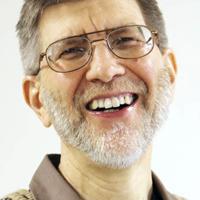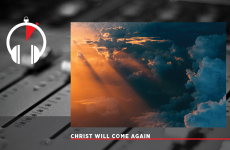
If you want to describe something, you can do it positively by telling what it is and negatively by what it is not. You can say the game of cricket is like baseball in that it has a ball, a bat, fences, two teams, you hit the ball after it is thrown and you catch the ball for an out. However, cricket has no gloves, diamond, foul lines, bases (wickets), pitcher (he’s a bowler), one man bats until he is out, a ball hit to the fence equals four runs, a ball over the fence is six runs and matches can go on for days without a winner. So is cricket really baseball?
There are many descriptions and definitions of Christianity in the world today, but most are way off. Christianity is the first six letters of the word: CHRIST. Period. Let’s all make very sure that we also know what CHRISTianity is not as we consider Colossians 2:8-23.
The theme of Colossians is “Jesus Christ is preeminent (first, top, chief, overall) and sufficient (more than enough, nothing more needed for salvation, spiritual life).” In 2:8 we find that Christianity is not mere human philosophy (the love, pursuit of wisdom). The Apostle Paul urges us all to not let anyone cheat (rob, plunder, kidnap) us through philosophy, which really is empty (vain) deceit, man’s tradition, according to basic (childish, elementary) principles of the world but not according to Christ.
While there is indeed true biblical Christian philosophy, there are many deadly philosophies which cheat people out of knowing and following Christ. Such “intellectual” products as Rationalism (man can figure things out for himself), Humanism (man has unlimited potential, can save himself and solve all problems without God), Hedonism (pleasure is the chief goal, good of man), Pragmatism (truth is what works, satisfies) and Naturalism (there is no supernatural or miraculous) have derailed many from Jesus Christ.
In verses 16-17 Paul reminds us that Christianity is not legalism or human attempts to gain salvation, spiritual maturity or God’s approval by outward obedience to and following of a set of rules, regulations or rituals apart from God’s grace, the finished work of Christ on the cross, personal faith and the Holy Spirit. The Pharisees of Jesus’ day were the biggest legalists, making extra-biblical rules and commands, thus enslaving themselves and others, and in fact shutting heaven’s door from entrance (Matthew 23:13).
The Jewish believers in Jesus Christ were set free from the Old Testament law, but many still insisted on the legalistic adherence to such things as dietary laws, feast days (Passover, etc.) and Sabbaths. Paul’s argument was, do you want to follow these shadows of Jesus, or Jesus, who is the reality the shadows pointed to and symbolized? Would you rather kiss your wife or her shadow? Would you rather hug your husband or his shadow? Too many today are following a shadow of Christianity in legalism and missing out on a personal saving relationship with Christ himself. “Believe on the Lord Jesus Christ, and you will be saved” (Acts 16:31)
Christianity is not mysticism (vv. 18-19) or human efforts to attain direct spiritual knowledge, reality and communion with God or the supernatural through personal and subjective experiences apart from and contrary to God’s word and the Holy Spirit. Too many feel the need to see, hear, touch and feel for themselves and are led into such things as the occult, channeling, near-eastern meditation, yoga, chanting, dreams, visions, ecstatic experiences, signs, angelic encounters and intermediaries. This is very dangerous territory.
Again, Paul warns us of being cheated (defrauded, robbed, disqualified) by intruding into these areas out of false humility and pride (vs. 16). The biggest danger is not holding fast to the Head (Jesus Christ – 1:18; 2:10) and following a “headless” form of Christianity. When we hold fast to Jesus, we are nourished, united and experience growth (vs. 17) while we look to him alone for salvation, strength, direction and wisdom. We walk by faith in him not by sight or mystical experiences. A headless person is dead and so headless or Christ-less religion is also dead.
Finally, we discover that true Christianity is not asceticism or rigorous self-denial in an attempt to gain personal salvation, greater holiness or approval with God (vv. 20-23). Verse 23 speaks of “neglect of the body” or severe, harsh treatment such as not lying down to sleep for 40 years, sitting naked in a mosquito-filled swamp for six months, sitting on a pole for 33 years (sometimes being blown down), drinking sour milk, perpetual silence or even literally crucifying yourself.
All this is totally unnecessary, because Christ died on the cross to fully pay the eternal penalty and punishment for our sins. We don’t have to beat ourselves up because he suffered as our Substitute (Isaiah 53). Paul states that such elementary practices, while having an appearance of spirituality, are of absolutely no value whatsoever in dealing with the real problem of our sinful hearts (vs. 23). We can’t beat the sin out of our lives. Only Jesus can set us free from the penalty and power of sin (John 8:32, 36).
The bottom line is simple: CHRISTianity is CHRIST. Don’t settle for the world’s and Satan’s subtle substitutes. “For in Him (Christ) dwells all the fullness of the Godhead bodily, and you are complete (full, all you should be, need to be) in HIM…” (Colossians 2:9-10). Don’t cheat yourself out of the one who is preeminent and sufficient. Trust him as Savior and then obey him, follow him, imitate him, love him, serve him, get to know him and worship him alone!


